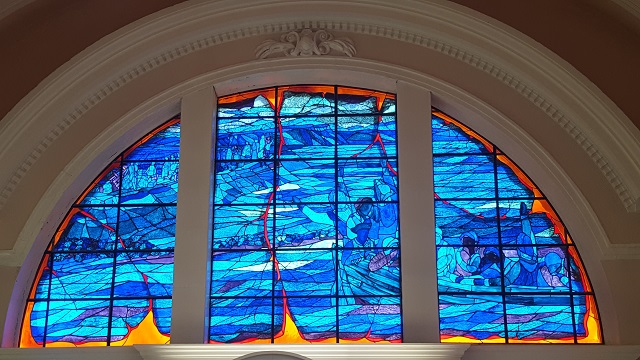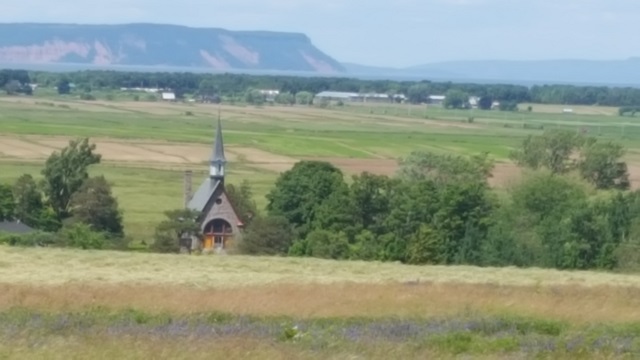
The Canadian Maritimes is a beautiful area full of small towns, friendly people and serene coastlines. As much as we enjoyed all the Maritimes has to offer, our mission for this trip was to “Walk in the Footsteps of our Ancestors”. We accomplished our mission – we found cousins, made many new friends, enjoyed what the area offered.
This post is the hardest and most difficult we have ever written. It is personal, about family, about loses, about sorrow and about much joy, fortitude and determination.
Our ancestors are from Grand Pré, Acadie (Nova Scotia). Today it is a World Heritage site and bears little resemblance to the Grand Pré of our ancestors. The Acadians of the 1600 and 1700s tamed the land, built dykes, farmed the land, raised cattle and lived in peace. They built homes and raised families. They build a church and practiced their Catholic faith. Because everything was destroyed during the deportation, today nothing is left of their life and lifestyle except memorials, markers, and memories.
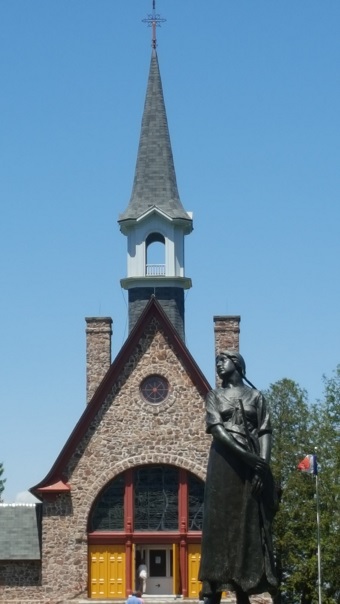
The Acadian settlement of Port Royal was becoming overpopulated, more farm land was needed. One of Laurie’s ancestors, Pierre Melanson, along with Pierre Terriot established Grand Pré in about 1680. With the quick growth of Grand Pré, it became the principal settlement in Acadie and the parish of Saint-Charles des Mines was established.
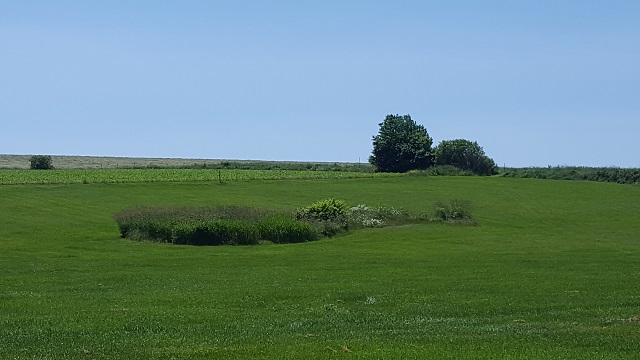
While the area switched from French to English several times, eventually it was permanently English. The Acadians wanted to remain neutral and live in peace. The English wanted the Acadians to pledge allegiance to England which meant pledging allegiance to the Church of England. Being stanuch Catholics, they refused.
In 1755, the Acadians of Grand Pré were deported, exiled from their land, Le Grand Dèrangement. It was not enough that families were separated, as the Acadians were sailing away in over crowded ships they watched their homeland burning. The English burned their church as well as their homes and fields so the Acadians would know there would be nothing remaining should they return.
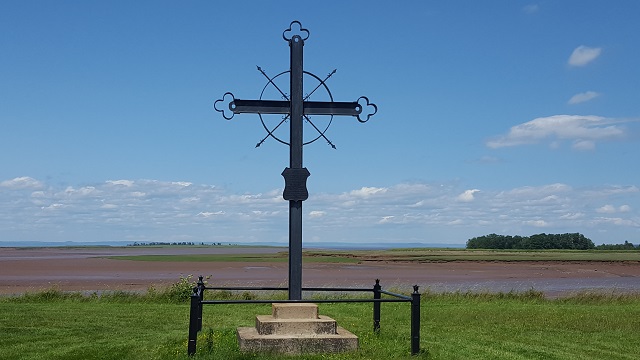
For us, the hardest part of walking in the footsteps of our ancestors is the fact that there is nothing left. The English burned Grand Pré and the New England Planters did not tend the cemeteries. So while we could walk the land, we could not visit gravesites or any structure other than some dykes.
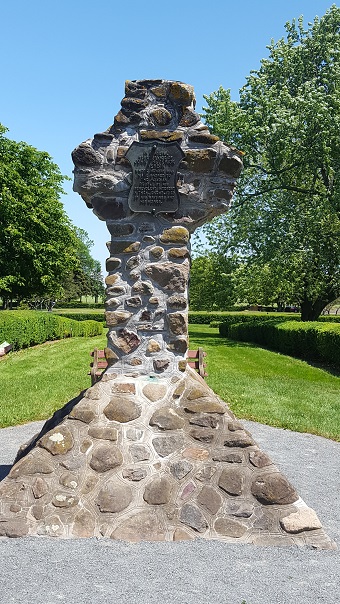
Eventually our ancestors made their way to south Louisiana and built a new life never forgetting their heritage. They held true to their Catholic faith, their French language and their way of life.
This brief history of the Grand Pré Acadians is just words. Walking the ground our ancestors lived on and the fields that they worked brought a range of emotions. We were happy to be in Grand Pré and see where our ancestors lived, sadness came as we realized everything they lost. Then anger at the English for the cruelty they wrought on the Acadians. After those emotions with a few tears shed, we are even more proud to be Acadians. While the English destroyed the Acadian homeland, they could not destroy the culture and pride of the Acadian people.
Our take away from our visit to the Maritimes – Many Canadians we met had no idea of the actual Acadian history. It is our opinion, Canada would like to see Acadian history keep a low profile. This will not happen! Acadians are proud of their heritage and history. As Acadians who wanted to walk in the footsteps of our ancestors, we found much to be proud of along with sadness and a range of other emotions. We came, we walked, we saw and we felt. We are proud to be Acadian. As Cajun Musician Marc Savoy said – “American by birth, Cajun by the grace of God”.
